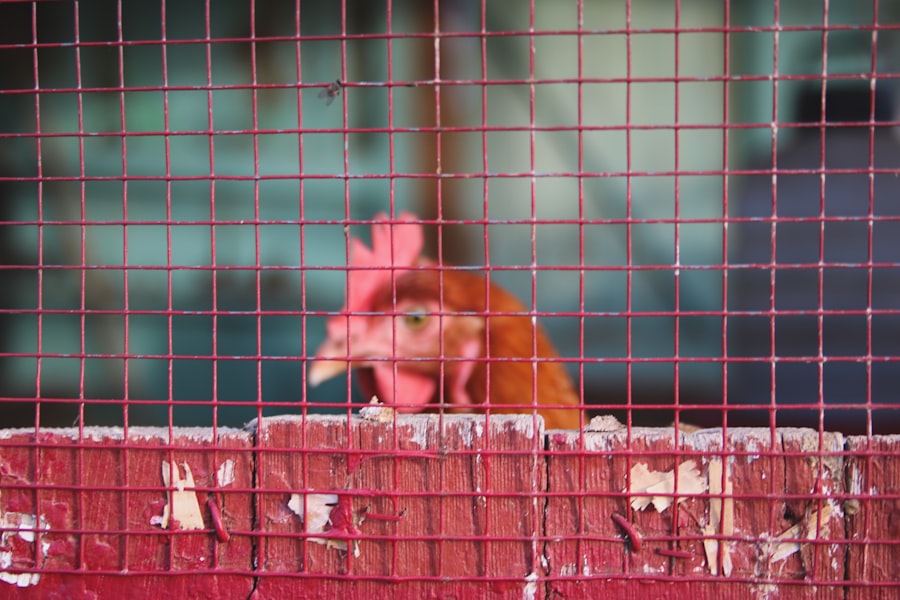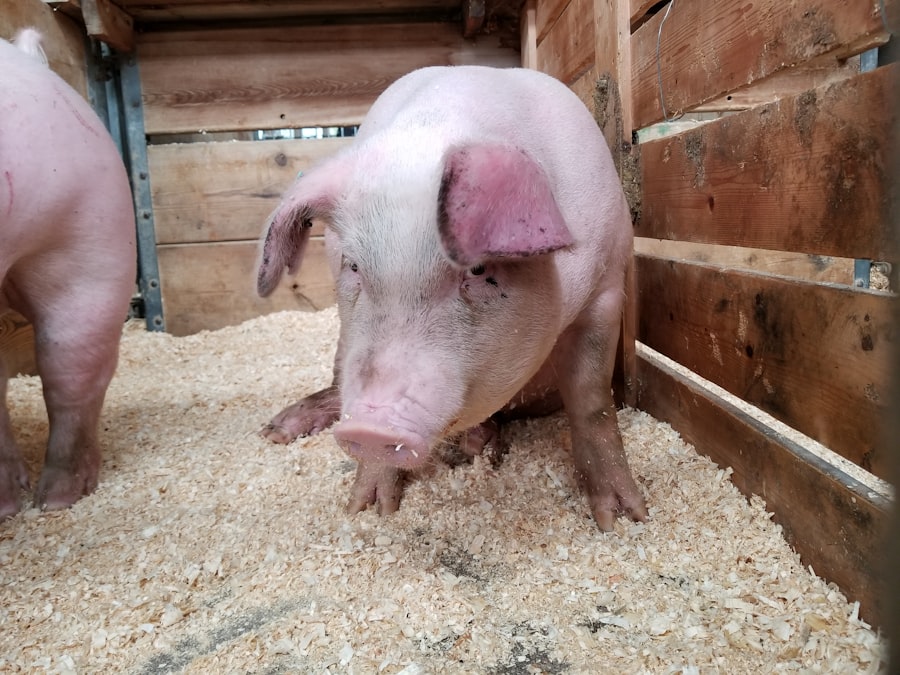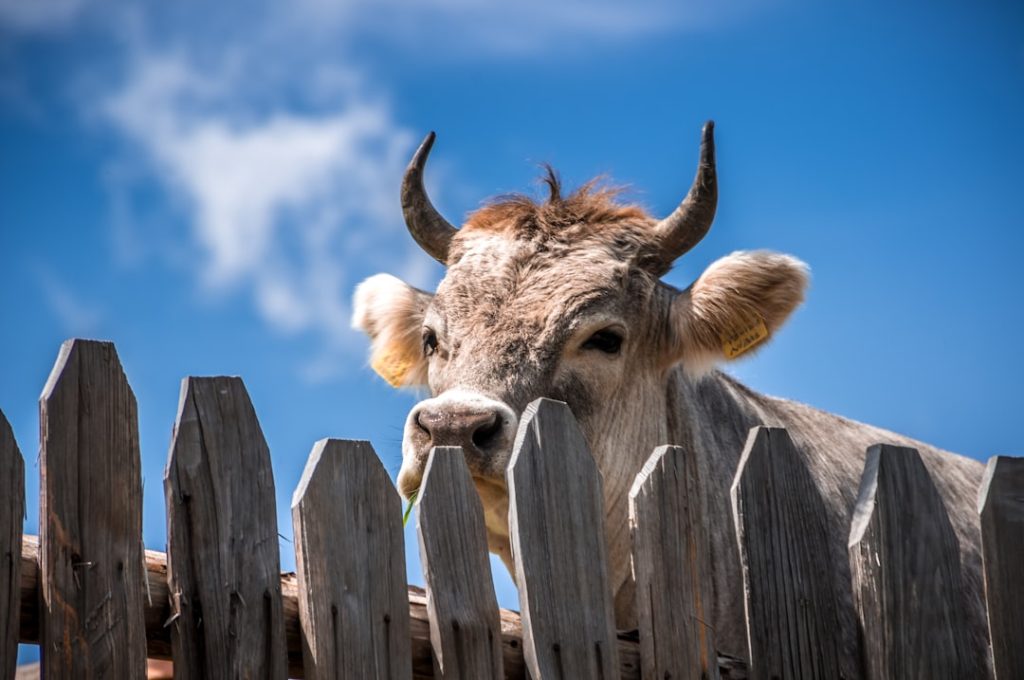Preventing chickens from accessing duck ponds is a significant concern for poultry keepers. Chickens, being inquisitive by nature, are often attracted to water bodies like duck ponds. However, their presence in these areas can result in several problems, including contamination of the water, potential conflicts with ducks, and disruption of the pond’s ecological balance.
To maintain a healthy environment for both chickens and ducks, it is essential for poultry owners to employ effective methods to restrict chicken access to duck ponds. Additionally, providing separate water sources for chickens is crucial to meet their hydration needs while preserving the integrity of the duck habitat.
Table of Contents
- 1 The Importance of Keeping Chickens Out of Duck Pond
- 2 Strategies for Keeping Chickens Away from the Duck Pond
- 3 Creating a Separate Water Source for Chickens
- 4 Implementing Physical Barriers
- 5 Utilizing Deterrents and Repellents
- 6 Conclusion and Final Tips
- 7 FAQs
- 7.1 What are some effective ways to keep chickens out of a duck pond?
- 7.2 Why is it important to keep chickens out of a duck pond?
- 7.3 What are the potential risks of allowing chickens to access a duck pond?
- 7.4 Are there any natural deterrents that can be used to keep chickens away from a duck pond?
- 7.5 How can I train my chickens to stay away from the duck pond?
Key Takeaways
- Chickens can pose a threat to duck ponds due to their destructive behavior and potential for spreading diseases.
- Keeping chickens out of duck ponds is important for the health and safety of the ducks and the overall maintenance of the pond.
- Strategies for keeping chickens away from the duck pond include creating a separate water source for the chickens and implementing physical barriers.
- Creating a separate water source for chickens can help reduce their interest in the duck pond and minimize the risk of contamination.
- Utilizing deterrents and repellents such as motion-activated sprinklers and natural scents can also help discourage chickens from approaching the duck pond.
The Importance of Keeping Chickens Out of Duck Pond
Protecting Water Quality and Preventing Disease
Keeping chickens out of duck ponds is essential for several reasons. Firstly, chickens can contaminate the water in the pond with their droppings, which can lead to the spread of diseases and parasites among the ducks and other wildlife that may use the pond. Additionally, chickens may disturb the natural balance of the pond ecosystem by foraging for food and disrupting the aquatic plants and organisms that are essential for maintaining water quality.
Safety Concerns for Ducks and Ducklings
Furthermore, chickens can pose a threat to the safety of ducks, especially ducklings, as they may peck at them or compete for resources in the pond. Overall, allowing chickens access to a duck pond can have detrimental effects on the health and well-being of the ducks and the overall ecological balance of the pond.
Preserving the Pond’s Integrity
Keeping chickens out of duck ponds is also important for the maintenance of the pond itself. Chickens can cause erosion and damage to the banks of the pond as they scratch and peck around the edges. This can lead to soil erosion and water quality issues, as well as potential structural damage to the pond. By preventing chickens from accessing the pond, poultry owners can help preserve the integrity of the pond and ensure its long-term health and functionality.
Strategies for Keeping Chickens Away from the Duck Pond

There are several effective strategies that poultry owners can implement to keep chickens away from duck ponds. One approach is to create physical barriers that prevent chickens from accessing the pond, such as fencing or netting. Another strategy is to provide alternative water sources for the chickens, such as troughs or waterers placed in a separate area away from the pond.
Additionally, deterrents and repellents can be used to discourage chickens from approaching the pond.
Creating a Separate Water Source for Chickens
One effective strategy for keeping chickens out of duck ponds is to provide them with a separate water source. By offering fresh water in troughs or waterers located away from the pond, poultry owners can help satisfy their flock’s hydration needs while reducing their interest in the duck pond. This approach not only helps prevent water contamination but also ensures that chickens have access to clean water at all times.
Additionally, providing a separate water source for chickens can help minimize competition and potential conflicts between chickens and ducks over access to the pond. Another benefit of creating a separate water source for chickens is that it allows poultry owners to monitor their flock’s water consumption more effectively. By keeping track of how much water their chickens are drinking, poultry owners can quickly identify any changes in drinking behavior that may indicate health issues or environmental stressors.
Overall, providing a separate water source for chickens is a practical and proactive way to keep them away from duck ponds while promoting their health and well-being.
Implementing Physical Barriers
Implementing physical barriers is another effective strategy for keeping chickens away from duck ponds. Fencing is a popular option for creating a boundary between the chickens’ living area and the pond. Poultry owners can install sturdy fencing around the perimeter of the pond to prevent chickens from gaining access.
Additionally, using netting or wire mesh over the surface of the pond can further deter chickens from approaching or entering the water. In addition to fencing and netting, landscaping features such as hedges or shrubs can also serve as natural barriers to discourage chickens from venturing near the pond. By strategically planting dense vegetation around the pond’s edges, poultry owners can create a visual and physical barrier that limits the chickens’ access while enhancing the aesthetic appeal of the pond area.
Overall, implementing physical barriers is an effective way to prevent chickens from reaching the duck pond and minimize potential damage to the pond ecosystem.
Utilizing Deterrents and Repellents

Motion-Activated Deterrents
In addition to creating physical barriers and providing alternative water sources, poultry owners can utilize deterrents and repellents to discourage chickens from approaching the duck pond. One common deterrent is motion-activated sprinklers, which can startle and deter chickens when they approach the pond area. These devices use sensors to detect movement and then release a burst of water, effectively discouraging chickens from getting too close to the pond.
Visual Deterrents
Another effective deterrent is the use of visual deterrents, such as reflective tape or shiny objects placed around the pond. These visual cues can create an illusion of danger or unpredictability, which can deter chickens from approaching the area. Additionally, using natural repellents such as citrus peels or garlic spray around the perimeter of the pond can help deter chickens with their strong scents.
Sound-Based Deterrents
Furthermore, sound-based deterrents, such as ultrasonic devices or predator calls, can also be effective in deterring chickens from approaching the pond. These devices emit high-frequency sounds or mimic predator calls, which can create a sense of danger and encourage chickens to stay away from the area.
Combining Deterrents for a Safe and Healthy Environment
By utilizing a combination of deterrents and repellents, poultry owners can effectively discourage chickens from accessing duck ponds while promoting a safe and healthy environment for their flock.
Conclusion and Final Tips
In conclusion, keeping chickens out of duck ponds is essential for maintaining water quality, preserving the integrity of the pond ecosystem, and ensuring the safety and well-being of both ducks and chickens. By implementing strategies such as creating separate water sources, using physical barriers, and utilizing deterrents and repellents, poultry owners can effectively keep their flock away from duck ponds while promoting a harmonious coexistence between ducks and chickens. Some final tips for keeping chickens out of duck ponds include regularly monitoring and maintaining physical barriers to ensure their effectiveness, providing enrichment activities and distractions for chickens in their designated living areas to reduce their interest in exploring other areas, and consistently reinforcing positive behaviors through training and positive reinforcement techniques.
By taking proactive measures and implementing these strategies, poultry owners can successfully keep their chickens away from duck ponds and create a safe and healthy environment for both their flock and local wildlife.
If you’re looking for more tips on keeping chickens, you might want to check out this article on turning a shed into a chicken coop. It offers valuable insights on creating a safe and comfortable space for your chickens to thrive.
FAQs
What are some effective ways to keep chickens out of a duck pond?
Some effective ways to keep chickens out of a duck pond include installing a fence around the pond, using netting or wire mesh to cover the pond, and providing alternative water sources for the chickens.
Why is it important to keep chickens out of a duck pond?
It is important to keep chickens out of a duck pond to prevent contamination of the water, reduce the risk of disease transmission between ducks and chickens, and to maintain the cleanliness and safety of the pond for the ducks.
What are the potential risks of allowing chickens to access a duck pond?
Allowing chickens to access a duck pond can lead to contamination of the water with chicken droppings, increased risk of parasites and diseases for the ducks, and potential damage to the pond ecosystem.
Are there any natural deterrents that can be used to keep chickens away from a duck pond?
Some natural deterrents that can be used to keep chickens away from a duck pond include planting dense vegetation around the pond, using motion-activated sprinklers, and introducing predator decoys such as fake owls or hawks.
How can I train my chickens to stay away from the duck pond?
Training chickens to stay away from a duck pond can be achieved through consistent reinforcement of boundaries, providing alternative sources of water and food away from the pond, and using positive and negative reinforcement techniques.
Meet Walter, the feathered-friend fanatic of Florida! Nestled in the sunshine state, Walter struts through life with his feathered companions, clucking his way to happiness. With a coop that’s fancier than a five-star hotel, he’s the Don Juan of the chicken world. When he’s not teaching his hens to do the cha-cha, you’ll find him in a heated debate with his prized rooster, Sir Clucks-a-Lot. Walter’s poultry passion is no yolk; he’s the sunny-side-up guy you never knew you needed in your flock of friends!







